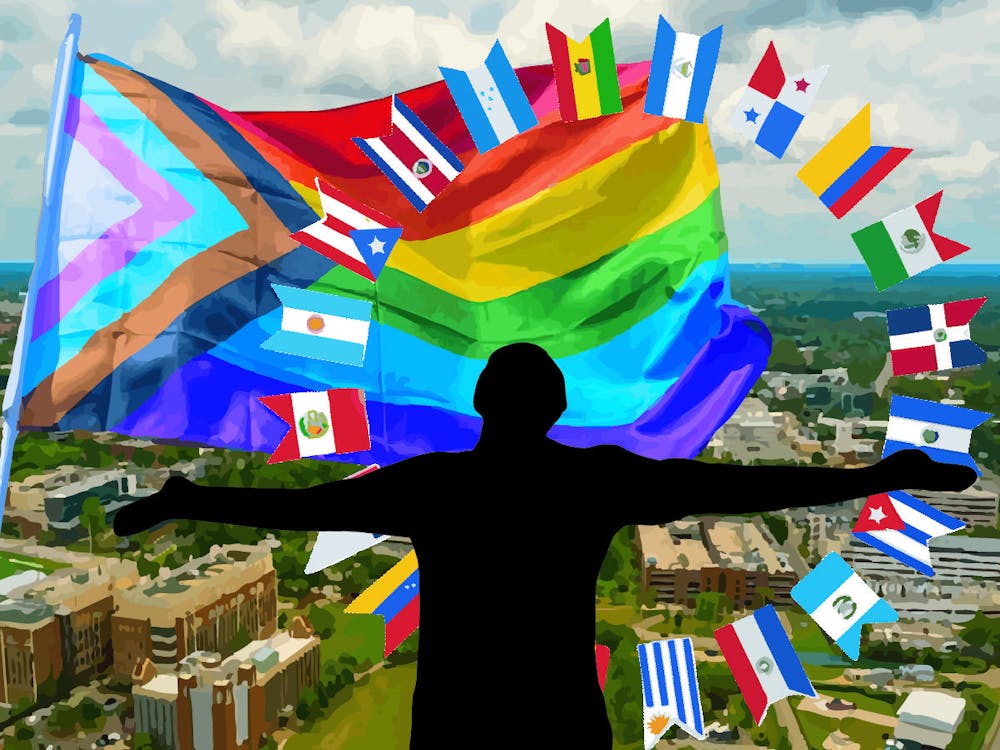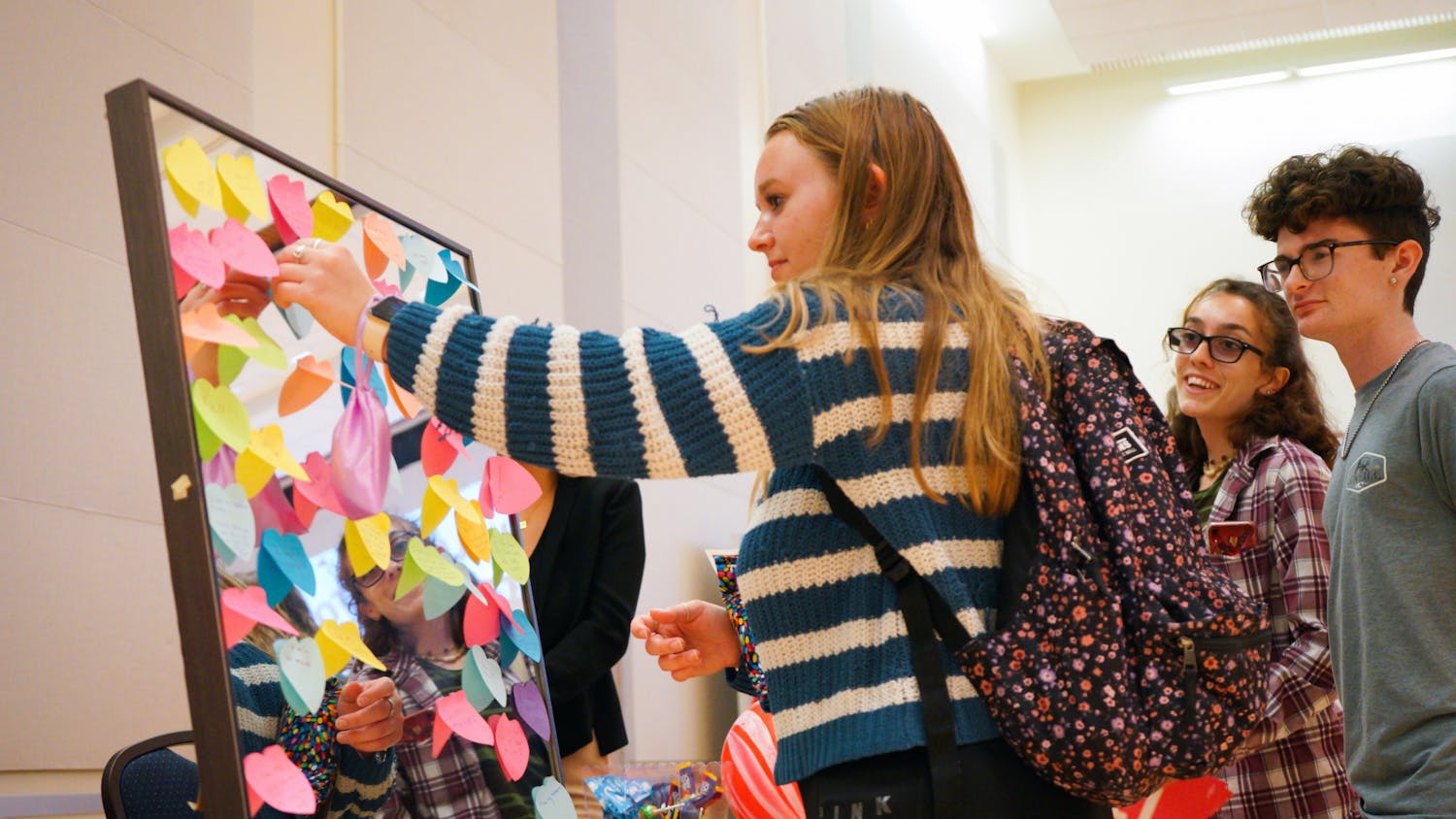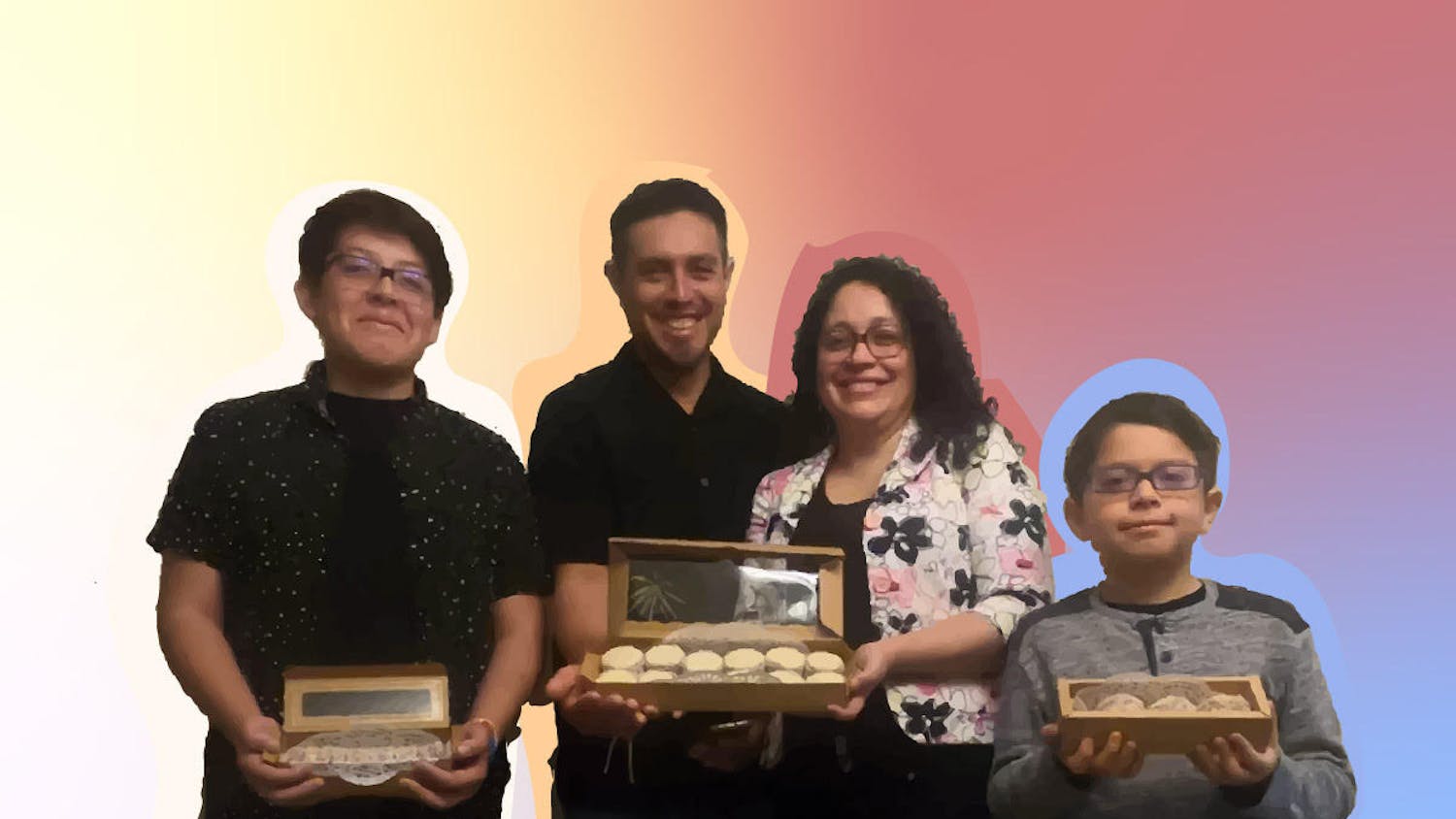Guatemalan first-generation UF sophomore Miguel Pascual is proud of his heritage, and in his free time he enjoys helping other first-generation students recognize this cultural admiration by developing their leadership skills.
Although the 19-year-old’s contributions as a member of the first-generation Latinx community are recognized by peers, Pascual often struggles with integrating this importance to his gay identity, fearing judgment from the student body, his friends and his culture.
While identifying as LGBTQ can be an individualized struggle, for some, the overlap between heritage and identity can elicit a strong sense of overwhelming instability.
Some of the friends he had who were of Hispanic heritage saw LGBTQ as weird or out of the norm, Pascual said. Pascual’s experiences with disregarding assumptions about his identity has led him to feel uncomfortable with expressing himself in Florida, a state that has passed numerous bills concerning LGBTQ.
“There are moments where I just don't really feel comfortable telling people that I am gay,” he said.
But UF’s Latinx student body continues to push down these unwarranted beliefs from the institution and create a safe space for all communities to thrive in.
Oscar Santiago Perez, the student government senate president of the Change Party, has dedicated part of his candidacy towards creating more inclusivity for the LGBTQ community on campus.
“I have been a huge advocate for the LGBTQ+ community, and I want to continue to do that within the current role serving as president,” they said.
Santiago Perez, 20, is Puerto Rican and identifies as nonbinary. Besides serving on SG, they are finishing up their term as Pride Student Union Treasurer and is the incoming President of Volunteers for International Student Affairs. They also worked with the Hispanic Student Association in the past.
Santiago Perez has upheld important roles during his time at UF, but that authority hasn’t erased their personal feelings of restriction. They believe they need to limit themself in fear of what others would say.
“I think that it’s taboo in a way within Hispanic circles,” they said. “Especially when you're not very certain if your parents would be very accepting.”
While Santiago Perez felt comfortable discussing identity with his mother, they are still trying to build up that connection with his father, they said.
Outside of their home, Santiago Perez believes that UF has given them a safe, comfortable environment to be authentic and to continue to advocate for authenticity in the lives of others. They found admirable groups and supportive friends who uplift them and their identity, they said.
“I’ve been able to discuss LGBTQ topics in a constructive, productive and safe manner,” they said.
Other students have experienced a mix of negative and positive feedback from friends and family.
Other students, like UF sophomore Sarah Wutzler, recognize the support they’ve received from their family despite receiving some negative reactions.
“Having other LGBTQ people in my family has been really helpful for me in accepting my own identity, but it has also caused a lot of fights and controversy within my family,” Wutzler said.
Wutzler is an 18-year-old Cuban-American and identifies as a cisgender queer woman.
“One of the biggest struggles for me is that a lot of my cultural Latinx values have clashed with my LGBTQ+ identity,” Wutzler said. “I had to learn to balance that while still feeling proud of both identities.”
Wutzler is an AWARE ambassador for the Counseling and Wellness Center, a director for the Health Disparities in Medicine Committee and a member of the American Medical Student Association. She also volunteers at the Opportunity Center where she tutors adults with mental illness.
Being on the pre-med track and majoring in psychology, she acknowledges the widespread neglect of LGBTQ health and wellness not only within UF but across the state and nation.
“The increase in anti-LGBTQ legislation which affects UF is alarming and feels like a threat not only to my physical safety but to my mental health and education as well,” she said.
She’s found a safe space within her own queer friends and other LGBTQ students, but she does not consider UF a comfortable environment, she said.
Wutzler feels fortunate to have her immediate family be accepting of her identity even if her extended family doesn’t share the same values. There’s a mix of opinions involving religion, race, age as well as social norms from Cuba, she said.
“I’m not out yet to my entire family because of this,” she said.
Regardless of conflicting views, Wutzler has hope her family can eventually begin to accept her beliefs and her identity. She also wants to be able to break down theirs.
“I am working on having conversations with my family to understand their perspectives and hopefully have them understand mine,” she said. “This is not always successful and rarely easy, but it does help foster love and some compassion even despite differences.”
The intersection between Latinx and LGBTQ communities has come with challenges, yet it's helped families further understand differences.
“I am fortunate to have grown up in a household that doesn't oppose who I am or what I identify as,” Pascual said. “But if there are any other folks out there who are not necessarily as fortunate as I was, there are resources out there that you can turn to – support systems outside of your household and that hopefully things do get better with time.”
Contact Nicole at nbeltran@alligator.org. Follow her on Twitter @nicolebeltg.
Nicole Beltran is the Spring 2025 Engagement Managing Editor and a third-year journalism and economics major. She’s worked as the Fall 2025 Senior News Director and caimán editor. In her spare time, Nicole enjoys journaling, sculpting and going for walks.






